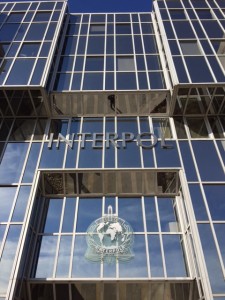Chemical Security in Istanbul
 I had the most interesting week in Istanbul with the Iraqi government representatives, chemical sector companies and the US State Department Chemical Security Program, CSP.
I had the most interesting week in Istanbul with the Iraqi government representatives, chemical sector companies and the US State Department Chemical Security Program, CSP.
Security in the chemical supply chain is a major challenge for government agencies and chemical supply chain companies across the globe, including those in the Middle-East and North African (MENA) region. Theft, diversion, trafficking, export violations, counterfeit chemicals, sabotage and terrorism – among other criminal threats – keep the agencies and companies constantly on their toes when considering how to best tackle the vulnerabilities and threats in their respective chemical supply chains.
This was my second time to join as an external expert in a Chemical Security Program (CSP) event in the MENA region. The first time was in Hurghada, Egypt, in March 2015 – thanks again to Professor Andrew Thomas, the Chief Editor of the Journal of Transportation Security, for hooking me up with CRDF Global and the US State Department on this. Now the four day event targeted for the relevant Iraqi government agencies as well as the Iraqi chemical sector companies was held in Istanbul, Turkey, on 14-17 December 2015.
We had a fully packed agenda: Day 1 consisted of several introductory and state-of-play speeches by the workshop facilitators and by Iraqi experts, the latter group sharing key governmental, industry and academic perspectives to the chemical security progress in Iraq. Day 2 started with a case study presentation on “Post-2001 supply chain security developments at Dow Chemicals”, followed by private-public partnership considerations in chemical supply chain security. During the afternoon of day 2, two more presentations were given on potential threats to materials of interest, as well as on site-physical security. Day 3 started with presentations on international transport of dangerous goods and security rules, followed later by presentations on export control and border security issues, as well as risk assessment methodological aspects.
Interactive sessions, group exercises and other discussions were vivid throughout the four days. On day 1, the main interactive session was about government-industry coordination. On day 2, the focus shifted to identifying key players in Iraqi chemical supply chain security, as well as exploring private sector specific chemical security issues. On day 3, a major interactive session took place to recognize existing vulnerabilities and threats in the chemical supply chain, as well as to identify appropriate countermeasures and other possible means of improvement. And finally, on day 4, a draft table of content for a potential “Iraqi chemical supply chain security master plan and implementation roadmap” was produced in a highly interactive manner, followed ultimately by drafting some actual planning content in areas including chemical transport security and raising security awareness.
The actual workshop outcomes and possible follow-up actions will be worked upon later by the organizing team and some key participants. In the meanwhile, I want to express my warmest thanks for this opportunity and great on-site collaboration in Istanbul to: Ms. Shawn Garcia from the U.S. Department of State, Chemical Security Program (DOS/CSP); Ms. Pelin Kavak and Mr. Nidal Abu Sammour from CRDF Global, US / Jordan; and Dr. Caner Zanbak and Mr. Mustafa Bagan from the Turkish Chemical Manufacturers Association (TCMA). Hope to meet you again in 2016 in Iraq, Algeria and possibly other locations in the MENA region!
Cheers, Juha Hintsa
P.S. We also tested two CBRA frameworks / models – CBRA SCS15/16, and CBRA-BAC-Actions and beneficiaries – with the audience during the Istanbul week. Both of them were well perceived, and will be topics for CBRA Blog during the coming couple of months. (SCS = Supply Chain Security, and BAC = Border Agency Cooperation).
PPS. Last but not least I would like to thank Ms. Antonella Di Fazio of Telespazio, Italy, and FP7-project CORE, for excellent inputs on transport of dangerous goods, traceability and monitoring solutions, demonstrators, and practical experiences.

